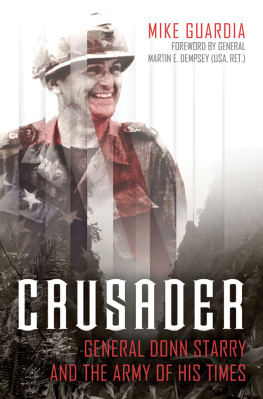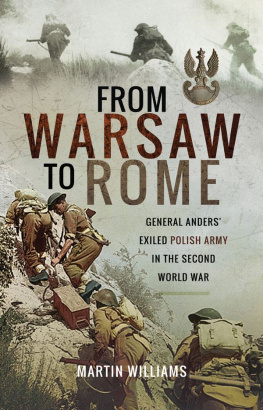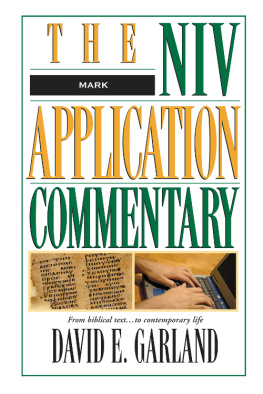Published in the United States of America and Great Britain in 2013 by
CASEMATE PUBLISHERS
908 Darby Road, Havertown, PA 19083
and
10 Hythe Bridge Street, Oxford, OX1 2EW
Copyright 2013 Jon B. Mikolashek
ISBN 978-1-61200-131-9
Digital Edition: ISBN 978-1-61200-143-2
Cataloging-in-publication data is available from the Library of Congress and the British Library.
All rights reserved. No part of this book may be reproduced or transmitted in any form or by any means, electronic or mechanical including photocopying, recording or by any information storage and retrieval system, without permission from the Publisher in writing.
10 9 8 7 6 5 4 3 2 1
Printed and bound in the United States of America.
For a complete list of Casemate titles please contact:
CASEMATE PUBLISHERS (US)
Telephone (610) 853-9131, Fax (610) 853-9146
E-mail: casemate@casematepublishing.com
CASEMATE PUBLISHERS (UK)
Telephone (01865) 241249, Fax (01865) 794449
E-mail: casemate-uk@casematepublishing.co.uk
INTRODUCTION
G EORGE S. P ATTON ONCE REMARKED , I THINK THAT IF you treat a skunk nicely, he will not piss on youas often. Along with Dwight D. Eisenhower, George S. Patton, and Omar N. Bradley, Mark Clark was a key figure in World War II.
Clark commanded the Fifth United States Army and later the 15th Army Group in Italy. Originally intended to quickly capture Rome, the campaign against the soft underbelly of Axis power proved much more difficult than Allied planners anticipated and dragged on until 2 May 1945. The campaign eventually became a sideshow for Operation Overlord, the cross-channel landing at Normandy. Allied success on D-Day and the breakout across France quickly made Italy the forgotten war. To the general public the war in Italy remains little known and is believed to be a campaign that took too long or was unnecessary. The main attraction of invading Italy for the Allies was that it would knock Italy out of the war, eliminate its fleet, establish a base for a possible invasion of the Balkans, and would bring Allied bombers closer to German factories and Romanian oilfields. Lastly, and most importantly, the Allied planners hoped that an invasion of Italy would pin down German divisions that might otherwise be used against the Soviets in the east or against the Western Allies after their landing in Normandy.
Both Prime Minister Winston S. Churchill and President Franklin D. Roosevelt realized that the Western Allies needed to fight somewhere between the 1942 invasion of North Africa and the proposed invasion of France. Following the invasion of Sicily, the two leaders debated what to do next: would it be better to conserve their forces until Overlord or should they continue on into Italy?
The Italian mainland was the logical choice. Proposed invasions of Sardinia and Corsica posed no direct threat to Germany. Furthermore, Stalin and the Soviets would have been furious with the Americans and British for not more directly engaging the Germans. An invasion of the Balkans was discussed, but in order to invade that region, American and British planners needed bases in Italy. Writing in his memoirs after the war, Clark explained the decision to fight in Italy:
The Allied campaign in the Mediterranean during World War II was, from the beginning, a gigantic calculated risk. We took a chanceand a grave onethat the French in North Africa would join us instead of fighting us. We risked a German counterattack through Spain that would have severed our supply lines. We risked untried American forces against veteran enemy armies at a time when defeat would have been an almost fatal disaster. But most of all, I suppose, we took a chance on Churchills persuasive eloquence, his conviction that we could slit this soft underbelly of the Mediterranean. It turned out to be not so soft.
Clark was right: the invasion of Italy was a calculated risk, but it was a risk worth taking.
By 1940, Clark was a well-respected lieutenant colonel with little troop command experience. Yet, by 1943, he was leading the Fifth Army up the Italian peninsula. By the summer of 1944, Clark and his forces had conquered Rome, but at the height of the Italian campaign his forces were stripped for Operation Anvil, later renamed Dragoonthe invasion of southern Franceand he was left to fight the remainder of the war with limited resources against a skilled and determined adversary high in the Italian mountains. For this reason, Clark is little known today. Once a household name, Clark has been forgotten, while the legacies of Eisenhower and Patton continue to grow.
Many believe Clark sought out publicity, and was a prima donna like George Patton. Critics point out that Clark would only let photos be taken from his left side and that every news release had to mention Clarks name three times on the first page and at least one time on the rest, and the Fifth Army was always referred to as Mark Clarks Fifth Army. Clark did have a healthy ego, just like most officers of his rank. It was his ego that had driven him his entire life, from West Point through the interwar years and into high command. Without a strong ego Clark never would have risen in rank or become an experienced high commander. This ego, however, would also cause him to make a terrible decision in switching his attack towards Rome, the Eternal City, when he may have had the opportunity to encircle a substantial portion of the German combat forces in Italy. Clark understood, however that his Fifth Army toiled in what had become militarily a secondary theaterFifth Army liberated Rome on 5 June 1944and that he needed to seek out more publicity. Clark did not solely want the press for himself, but also for his troops and their families.
Historians have further tarnished Clarks reputation by viewing him as an inadequate commander. As the esteemed historian Carlo DEste writes, Clark lacked that ill-defined but vital ingredient for successful command the ability to sense instinctively the right course of action on the field of battle.
Neither George Patton nor other commanders would have been able to do anything different in Italy. The slowness of the campaign, the defensive terrain, and the skill of German commander Albert Kesselring would have frustrated a mad-dash commander like Patton. To understand the difficulty of Clarks mission in Italy, all one must do is visit the region. Southern Italy is known for its excellent food and wine, but it is also known for its numerous streams, rivers, hills and mountains. Tracing the steps of Clark and the United States Fifth Army from Salerno northward towards Rome, visitors can see the dangers of the terrain. In Salerno, the Allies had to deal with towering hills overlooking the landing areas. Following the advance out of Salerno, Fifth Army was constantly slowed by marshy terrain that bogged down their tanks and by hills that grew into mile-high mountains. At Anzio, with limited forces available, Clark and his troops landed on rough shores, only to face more marshes backed by the towering Alban Hills. After taking Rome, the terrain grew even more daunting as the Apennine leads into the Po River valley and eventually to the Alps of Northern Italy. Adding well led, skilled German defenders to the terrain made the war in Italy a terrible task for Clark, or any other commander. Yet, the Allies were forced to fight in 1943, and Italy offered them the best opportunity. War is never perfect, and the Italian campaign is a perfect example of this. Like Fifth Army commander Mark W. Clark, the campaign in Italy was flawed, but both were essential to winning World War II in Europe.










